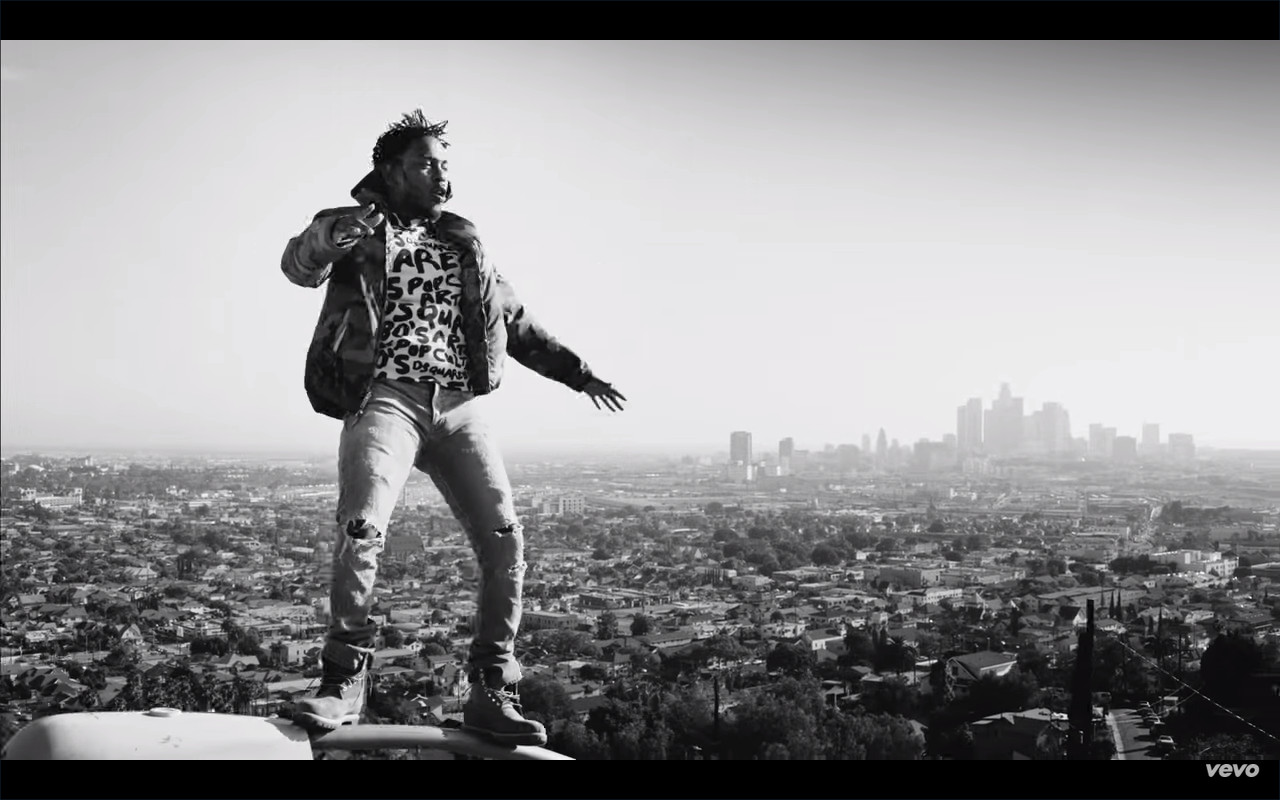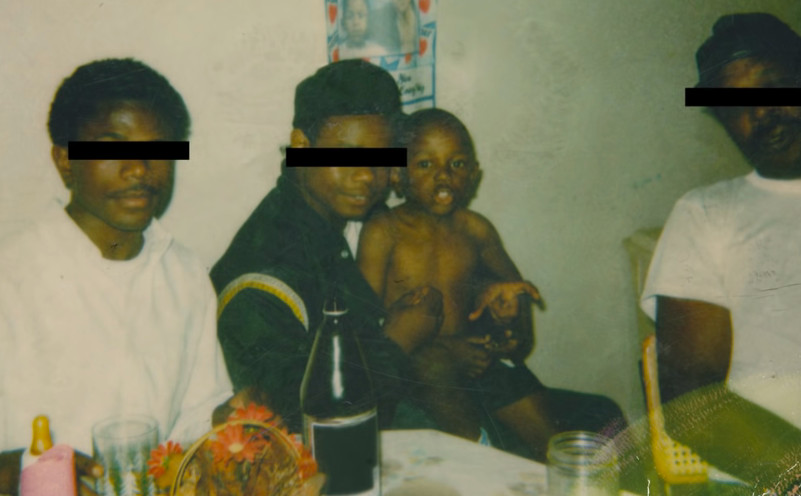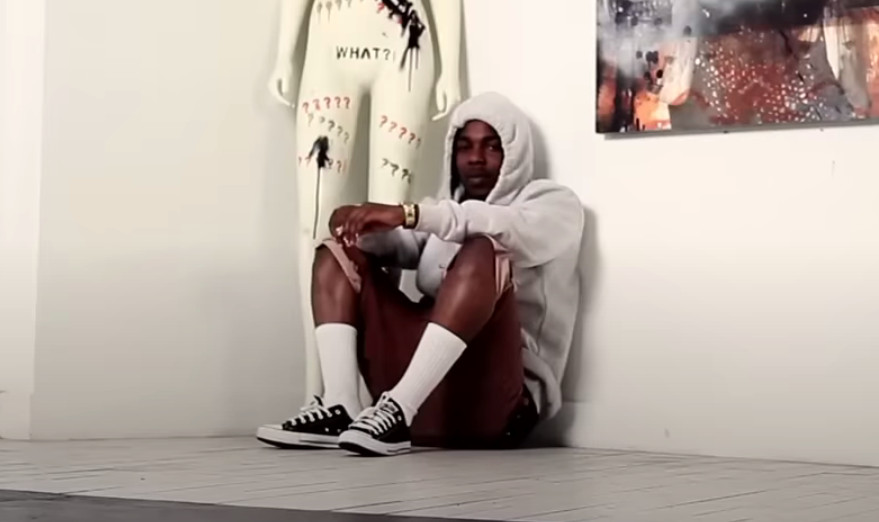Kendrick Lamar stands alone in the contemporary rap landscape, an artist whose ascent to icon status is unparalleled. Celebrated for his intricate lyricism, innovative songwriting, boundless creativity, and profound perspective, Lamar has cultivated a discography that masterfully navigates the space between introspective vulnerability and sharp social commentary.
Whether dissecting themes of addiction, societal violence, class disparities, familial bonds, the realities of Compton life, or even playful jabs at figures like Drake, Lamar’s artistry lies in his chameleon-like ability to morph his vocal delivery and pen nuanced narratives. This evocative storytelling has garnered him both critical acclaim and widespread commercial success, marked by chart-topping hits, numerous Grammy Awards, and the prestigious Pulitzer Prize. His cultural impact is undeniable, highlighted by his headlining performance at the Super Bowl Halftime Show, where, alongside SZA, he brought his complex narratives to a global audience.
In anticipation of such monumental moments and to celebrate his enduring legacy, we delve into the essential tracks that define Kendrick Lamar’s career. While some personal favorites may inevitably be omitted, this curated list showcases a comprehensive cross-section of Lamar’s lyrical genius and songwriting prowess, representing the cornerstones of his extraordinary body of work.
All the Stars
“All the Stars,” the flagship single from Lamar’s “Black Panther” soundtrack, served as an initial glimpse into the ambitious sonic world he and Top Dawg Entertainment (TDE) envisioned for Ryan Coogler’s groundbreaking Marvel film. Despite being one of the more understated tracks on the album, it emerges as a standout piece. Lamar’s controlled, almost stoic delivery perfectly complements SZA’s ethereal vocals on the unforgettable hook (“This may be the night that my dreams might let me know / All the stars are closer”), all underpinned by a driving, synth-heavy beat punctuated with lush strings. A ubiquitous presence on radio airwaves, “All the Stars” achieved both commercial and critical success, earning accolades at the Grammy Awards and MTV Video Music Awards, and notably securing Lamar his first Academy Award nomination for Best Original Song. “Black Panther” and its soundtrack marked Lamar’s formal foray into cinema, a journey he and PGLang partner Dave Free continue to explore with their forthcoming comedy film co-produced by “South Park” creators Matt Stone and Trey Parker.
Alright
 Alright music video still
Alright music video still
Opening with a powerful allusion to Alice Walker’s seminal novel “The Color Purple” (“Alls my life I has to fight”), “Alright” immediately declares its intent: this is a profound work of Black artistry, unequivocally. Released as the fourth single from the seminal album “To Pimp a Butterfly,” the track transcended its musical form to become an anthem for a generation grappling with social injustice. “Alright” became the defining protest song of its time as Lamar unflinchingly examined the multifaceted duality of the Black experience in America. He meticulously crafted the lyrics over six months, building upon a beat produced by Pharrell Williams, ultimately arriving at an approach he characterized as “uplifting yet aggressive.” The song fearlessly confronts police brutality with potent (and often tragically misunderstood) lines such as “And we hate po-po / wanna kill us dead in the street fo sho,” while simultaneously offering a resonant message of resilience and hope, affirming that despite systemic challenges, “we gon’ be alright.”
Backseat Freestyle
One of Kendrick Lamar’s most compelling artistic instincts is his masterful command of vocal dynamics, knowing precisely when to transition from introspective flows to raw, guttural roars. “Backseat Freestyle” exemplifies this, unleashing a snarling intensity to maximum impact. Produced by Hit-Boy, the track stands in stark sonic contrast to other cuts from “Good Kid, M.A.A.D. City” – it’s not the melodic introspection of “Bitch, Don’t Kill My Vibe.” This sonic sparseness is precisely what gives “Backseat Freestyle” its cutting edge. Stripped of extraneous embellishments, the focus sharpens on Lamar’s raw energy and lyrical prowess. This is an unapologetic ode to Compton, defined by the stark clang of metallic sounds and unwavering demands for respect. It’s a powerful celebration of his hard-earned achievements, tempered by a prescient awareness that complacency is not an option: “My mind is livin’ on cloud nine and this nine is never on vacation,” he emphatically raps.
Bitch, Don’t Kill My Vibe
 Bitch, Don’t Kill My Vibe music video still
Bitch, Don’t Kill My Vibe music video still
By the time “Bitch, Don’t Kill My Vibe” was unveiled as the fifth single from Lamar’s groundbreaking album “Good Kid, M.A.A.D City,” he had already solidified his hit-making capabilities with certified bangers like “Swimming Pools (Drank)” and “Backseat Freestyle,” in addition to a notable collaboration with Drake on “Poetic Justice.” Initially conceived as a duet with Lady Gaga, the song evolved into a deeply personal meditation on Lamar’s burgeoning status within the music industry and his evolving artistic mindset. “Bitch, Don’t Kill My Vibe” functions as a powerful declaration of Lamar’s iconoclastic nature, offering an early glimpse into the unwavering integrity and profound passion that would ultimately distinguish him from his contemporaries and cement his legacy as a unique voice in hip-hop.
DNA
 DNA single cover
DNA single cover
Early in his career, Kendrick Lamar established a defining characteristic for his fanbase: he demands active listening and intellectual engagement. While capable of crafting commercially appealing hits at any moment, his artistic inclination leans towards challenging both his audience and himself with unexpected sonic and lyrical complexities. Just when listeners might have settled into the jazz-infused soundscapes of “To Pimp a Butterfly,” he delivered “DNA,” a mind-bending track that defies genre categorization. The song initiates with a catchy, swampy groove that lulls the listener into a sense of familiarity, before rapidly escalating into sonic experimentation. “DNA” layers disparate musical elements, creating a dynamic and almost chaotic soundscape that pushes the boundaries of conventional hip-hop. Despite its sonic complexity, the lyrical content of “DNA” is remarkably direct, revealing Lamar’s profound self-awareness and early recognition of his internal conflicts: “Realness, I just kill shit ’cause it’s in my DNA / I got millions, I got riches buildin’ in my DNA / I got dark, I got evil that rot inside my DNA / I got a troublesome heart inside my DNA.”
Euphoria
 Euphoria single cover
Euphoria single cover
While “Not Like Us” ultimately became the cultural phenomenon and diss track juggernaut in the Kendrick Lamar-Drake saga, “Euphoria,” Lamar’s initial salvo, is a masterclass in lyrical dismantling. It’s a brutal and meticulously crafted attack that methodically deconstructs Drake’s persona across three distinct and increasingly aggressive beat shifts. “Euphoria” commences with a deceptively low-key intro, laced with veiled threats and subtle jabs (“Know you a master manipulator and habitual liar too / But don’t tell no lie about me and I won’t tell truths ’bout you”), before escalating into pointed accusations and personal barbs. The accusations of absentee parenting, delivered with chilling precision (“I got a son to raise, but I can see you don’t know nothin’ ’bout that”), are particularly visceral. Every line in “Euphoria” lands with the force of a shockwave, effectively setting the stage for the internet-breaking impact of “Not Like Us.”
King’s Dead
Kendrick Lamar’s curated soundtrack for “Black Panther” reaches an explosive apex with “King’s Dead,” a high-octane hip-hop collaboration featuring himself, Jay Rock, and Future. While Future’s verse may deviate somewhat from the thematic and narrative threads of Ryan Coogler’s film, Lamar and Jay Rock elevate the track to an epic scale befitting royalty, whether living or deceased. “King’s Dead” showcases Lamar’s unparalleled ability to command any creative challenge, even within the constraints of a superhero movie soundtrack. Jay Rock’s contribution is so impactful that he rightfully claimed it as the lead single for his subsequent album.
Money Trees
 Money Trees music video still
Money Trees music video still
Set against a woozy, atmospheric beat crafted by DJ Dahi and Hit-Boy, “Money Trees” encapsulates the nostalgic essence that permeates “Good Kid, M.A.A.D City.” Lamar employs a captivating call-and-response flow, seamlessly weaving together references to musical icons like Usher and E-40 with stark depictions of the violence that pervades his surroundings. The chorus delivers a profound and recurring theme of the album: “Everybody gon’ respect the shooter/But the one in front of the gun lives forever.” Jay Rock’s featured verse stands as a career highlight, delivering urgent rhymes about the complexities of drug dealing with vivid detail, almost providing a blueprint for an illicit enterprise.
Not Like Us
Even prior to its impressive haul of five Grammy Awards, “Not Like Us” was instantly recognized as a modern classic within Kendrick Lamar’s unparalleled catalog of timeless hits. The track strategically targeted the right adversaries – primarily Drake – and resonated deeply with a fervent fanbase of West Coast hip-hop craving a dominant anthem after years of relative absence in the mainstream. “Not Like Us” effectively filled this void, showcasing the combined talents of two acclaimed artists – Lamar and producer DJ Mustard – operating at the peak of their abilities, executing their signature styles flawlessly. Built upon a foundation of aggressively syncopated rhythms, the beat is clean and minimalistic, allowing Lamar’s rapid-fire flow and West Coast-inflected delivery to take center stage. The resounding success and enduring freshness of “Not Like Us” offer valuable lessons, but perhaps the most significant takeaway is the empowering message to embrace one’s inner critic and challenger.
Poetic Justice
 Poetic Justice music video still
Poetic Justice music video still
“Poetic Justice,” built around a sample of Janet Jackson’s sultry vocals from “Any Time, Any Place,” stands as arguably the sole love song on the otherwise thematically diverse “Good Kid, M.A.A.D City” – and it is exceptional. As one of his most commercially successful tracks to date, “Poetic Justice” undeniably benefits from the timeless sensuality of Jackson’s original sample. Beyond the presence of Drake, with whom Lamar now has a well-documented rivalry, the song reveals a past chemistry between the artists. The lyrical beauty of “Poetic Justice” is further enhanced by striking one-liners, such as the evocative question: “If a flower bloomed in a dark room would you trust it?”
Rich Spirit
Anchored by the declarative chorus lyric “Stop playin’ with me ‘fore I turn you to a song,” “Rich Spirit,” from “Mr. Morale & the Big Steppers,” can be interpreted as both a FAFO (fuck around and find out) warning directed outward and a moment of self-admonishment. Released two years prior to his historic and Grammy-winning beef with Drake, the line foreshadows Lamar’s lyrical combativeness. Simultaneously, within the context of verses examining his accomplishments, industry responsibilities, and complex relationships with confidantes, collaborators, and even family (“And my cousin tried to sue me like he got the privilege”), “Rich Spirit” feels introspective. Lamar grapples with the isolating effects of success and the increasingly intricate web of his personal and professional life.
Rigamortus
 Rigamortus music video still
Rigamortus music video still
“Section.80,” Lamar’s 2011 debut album, served as a formal introduction for those unfamiliar with his mixtape-era brilliance. The album solidified his foundational strengths as an emcee – equally adept at portraying the harsh realities of street life and exploring the temptations that accompany escaping it. “Rigamortus” strikes a balance by foregrounding his lyrical dexterity, delivering a clear warning to his rap peers that his wordplay is a formidable weapon. He doesn’t just assert this verbally; he demonstrates his lyrical agility by gliding across the horn-driven instrumental, experimenting with intricate rhyme schemes and firing off warning shots with every turn of phrase. If a definitive starting point for Lamar’s ascent exists, “Rigamortus” undeniably marks a crucial point of origin.
Swimming Pools (Drank)
“Swimming Pools (Drank)” marked Lamar’s Interscope label debut as a relatively nascent artist, delivering an introspective party anthem. The track delves into the pervasive issue of alcohol abuse through rhyme, and in retrospect, it serves as a clear and compelling precursor to Lamar’s widely recognized politically charged approach to rap music. From the outset, he establishes the allure of drinking culture – “Some people like the way it feel / Some people wanna kill their sorrows / Some people wanna fit in with the popular” – only to introduce a cautionary voice of conscience midway through the song. By the conclusion of “Swimming Pools (Drank),” Lamar has woven a cautionary narrative, deeply personal yet representative of a cyclical pattern of struggle within Compton.
TV Off
While undeniably more lighthearted and less lyrically dense than much of the Pulitzer Prize winner’s catalog, “TV Off” is an undeniably infectious and celebratory victory lap. Opening with a sample from MacArthur Park’s “Monk Higgins,” Lamar issues a call to action against conformity, urging listeners to “turn the TV off” as a means of resisting unconscious influence. From its triumphant horn section to the meme-worthy ad-libs of “Mustaaaaaaaaaard!” and “Crazy, scary, spooky, hilarious,” “TV Off” builds upon the success of “Not Like Us” with another classic DJ Mustard production.
untitled 05 | 09.21.2014.
Lamar’s lyrical craftsmanship is razor-sharp on “untitled 05 | 09.21.2014.,” a bleak and poignant lament on class disparities. In the opening verse, his persona is pushed to the brink (“Once upon a time I used to go to church and talk to God / Now I’m thinkin’ to myself, hollow tips is all I got”) and commits a shocking act of violence, all set against a jazzy backdrop featuring Anna Wise’s chorus and a creeping Thundercat bassline. Lamar’s vocal delivery is raw and emotionally charged, and the subsequent verses featuring Punch and Jay Rock only amplify the track’s intensity. Lines like “Justice ain’t free, therefore justice ain’t me / So I justify his name on obituary” resonate deeply, serving as precise thematic throughlines within Lamar’s broader storytelling. The inclusion of such powerful and unfinished thoughts on a demo album underscores their significance in understanding Lamar’s artistic process.
XXX
 XXX single cover
XXX single cover
“XXX” is an ambitious track where Lamar tackles the complexities of the American Dream and the role of religion. Adapting his flow to match the song’s shifting beat variations, the latter portion of the first verse finds Lamar in breathless mode, rhyming about the futility of offering comfort to a grieving friend whose child was killed over money: “‘I can’t sugarcoat the answer for you, this is how I feel / If somebody kill my son, that mean somebody gettin’ killed,” he raps, as police sirens encroach upon the beat. The song then transitions to a jazzy interlude, featuring a thematically resonant verse from Bono. “XXX” is saturated with grand ideas, arriving in a torrent: “It’s murder on my street, your street, back streets, Wall Street / Corporate offices, banks, employees, and bosses with / Homicidal thoughts, Donald Trump’s in office.” The track serves as a powerful commentary on contemporary American society, delivered with Lamar’s signature lyrical dexterity and fearless exploration of complex themes.
